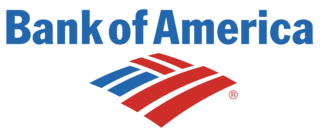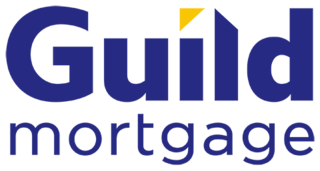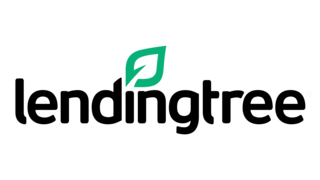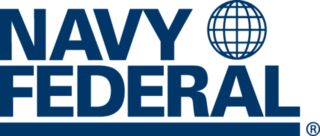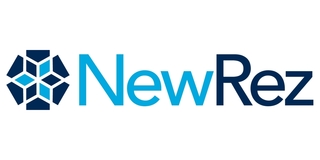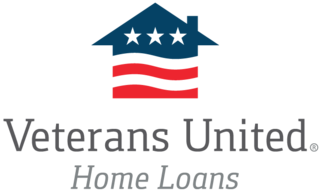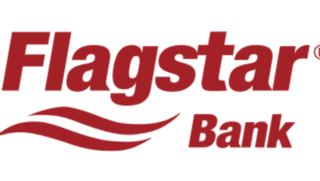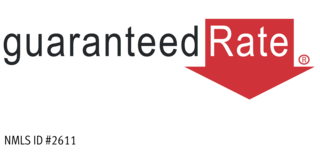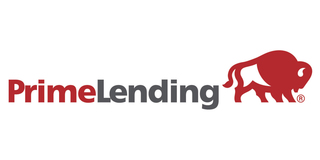8 Best Mortgage Lenders of July 2024
Money's Main Takeaways:
- Buying a home is likely the biggest investment you will make. With mortgage rates hovering around 7%, finding the right lender is more important than ever.
- The best way to find the most competitive rates and terms that fit your financial needs is to shop around and compare products from at least three different lenders.
- When shopping around for the right loan, look beyond the offered interest rates. Consider each lender’s fees, if they have fast pre-approvals and easy application processes — and check their customer satisfaction rankings
- Our top picks for best mortgage lenders include Rocket Mortgage (best customer service), LendingTree (best marketplace) and Veterans United (best online lender for members of the military)
Why Trust Us?
Money has been providing its readers with in-depth product reviews and financial advice for over 50 years. Our mortgage lender reviews are the result of hours of research and analysis of over 20 lenders. We evaluated the variety of loan types offered, average interest rates, customer service ratings and the number of complaints filed against each lender, among other factors. We also relied on rankings and data from expert sources, including the Mortgage Bankers Association, J.D. Power’s Mortgage Origination Satisfaction Study and the National Multistate Licensing System (NMLS).
Our Top Picks for Best Mortgage Lenders of 2024
The companies below are listed in alphabetical order.
- Bank of America – Best National Bank
- Better Mortgage – Best for Fast Closing Time
- Guild Mortgage – Best for First-Time Homebuyers
- LendingTree – Best Marketplace
- Navy Federal – Best In-person Lender for Military Members
- Newrez – Best for Investment Property Loans
- Rocket Mortgage – Best Customer Service
- Veterans United – Best Online Lender for Military Members
Best Mortgage Lender Reviews
- Thousands of branches nationwide
- Down payment and closing costs assistance program available
- Application can be done digitally
- Rates shown are for a credit score of 740 or higher
- Fee information isn't available online
- No renovation loans available
- Type of Loans
- Purchase, Jumbo, Refinance, Fixed, Adjustable, FHA, VA, Doctor
- Minimum Down Payment
- 3%
- Minimum Credit Score
- 620
Why we chose this company: Bank of America (NMLS: #399802) offers a wide selection of mortgage options, competitive closing costs and the chance for discounts on fees and rates if you’re already a bank customer.
Customers with an existing Bank of America account who are members of the bank’s Preferred Rewards program can qualify for a $200 to $600 reduction in closing cost fees or interest rate discounts on home equity lines of credit, depending on their reward tier (among other benefits).
You can apply for a mortgage online or at one of the bank’s 4,300 branches and 2,900 lending centers if you prefer in-person service. You can also sign, submit and track documents online through Bank of America’s Home Loan Navigator.
See rates on Bank of America's Secure Website >>
- No origination, underwriting, or application fees
- Assistance programs for down payment and closing costs
- Representatives available every day until 9 pm ET
- Doesn't offer customizable terms
- No USDA loans
- Type of Loans
- Purchase, Jumbo, Refinance, Fixed, Adjustable, HELOCs, VA
- Minimum Down Payment
- 3%
- Minimum Credit Score
- 620
Why we chose this company: Better Mortgage’s (NMLS: #330511) streamlined application and document submission process can significantly reduce the amount of time it takes to close on a home loan.
With Better’s One-Day Mortgage, customers can submit their financial documents, lock in a mortgage rate and, if they qualify, receive a loan commitment letter within 24 hours. According to the lender’s website, borrowers can also close on their mortgage up to 17 days faster than the industry average (for comparison, the industry standard is around 45 days).
The online lender also has a Better Price Guarantee. The lender will match a competitor’s offer or give you a $100 credit. Another plus: the lender doesn’t charge commissions on the loans it originates.
See rates on Better's Secure Website >>
- One of the nation's top five lenders of FHA loans
- Home improvement and manufactured home mortgage loans available
- Specific programs for low-income borrowers available
- Matches customers with down payment assistance
- No current mortgage rates available on its website
- No home equity products available
- Not available in NY and NJ
- Types of Loans
- Purchase, Jumbo, Refinance, Fixed, Adjustable, FHA, VA, USDA
- Minimum Down Payment
- 0%
- Minimum Credit Score
- 620
Why we chose this company: Guild Mortgage (NMLS: #3274) is a great option for first-time homebuyers because of its low credit score requirements, multiple loan options and ability to connect borrowers with more than 500 down payment assistance programs throughout the country.
With Guild’s 1% Down Payment Advantage Program, you only have to put 1% of the purchase price down and the lender will pay another 2%, up to a maximum of $5,000. For homes purchased before December 21, 2024, Guild’s Payment Advantage program also offers a 1% temporary rate buydown for the first year of the loan.
Another advantage is the lender’s large variety of loan products, which include rate buydowns for up to three years, FHA, VA and USDA loans, and energy-efficient loans, among other options. Guild can originate loans in all but two states — New York and New Jersey. The lender can fully close mortgages online via its digital platform, MyMortgage, which can speed up the closing process.
See rates on Guild Mortgage's Secure Website >>
- Compare offers from over 300 lenders in minutes
- Comprehensive learning resources available
- You could receive multiple phone calls or emails from different lenders competing for your business
- Type of Loans
- Purchase, Jumbo, Refinance, Fixed, Adjustable, FHA, VA, USDA (specifics vary by lender)
- Minimum Down Payment
- Varies by lender
- Minimum Credit Score
- ~585 (recommended)
Why we chose this company: LendingTree (NMLS #1136) allows you to easily compare rate quotes from multiple lenders, making it our choice for the best mortgage marketplace.
LendingTree has a network of over 300 lenders located throughout the country. You can discuss the options with a LendingTree loan officer to find the option that best fits your needs. Once you complete a simple, three-step online application, you will be contacted by up to five different lenders offering quote estimates.
During this comparison process, LendingTree runs a soft credit check, which won’t affect your score. If you do choose a lender LendingTree recommends, you’ll complete the application process with that company directly (which will require a hard credit check).
LendingTree also offers plenty of educational resources and support services, including information on current mortgage rates, loan calculators and a national loan officer directory. The company’s free Spring account helps users keep tabs on their credit score and offers tips on how to improve it, among other features.
See rates on LendingTree's Secure Website >>
- 324 branches nationwide, catering to military members, reservists, veterans, retirees, and annuitants
- Up to 100% financing and 0% down payment options available
- Rate loan match available
- Doesn't offer customized rates unless you apply
- Type of Loans
- Purchase, Jumbo, Refinance, Fixed, Adjustable, VA
- Minimum Down Payment
- 0%
- Minimum Credit Score
- Undisclosed
Why we chose this company: Navy Federal Credit Union (NMLS: #399807) is our choice for the best in-person lender for military members because of its loan variety, discounts and large number of branches throughout the country.
One of Navy Federal’s standout loan options is the Homebuyers Choice loan. It allows you to finance 100% of the home’s purchase price, get a fixed rate loan with consistent monthly payments and the seller can contribute up to 4% towards closing costs. You may also qualify for the credit union’s No-Refi Rate Lock: if interest rates drop after six months of your purchase date, you can pay a $250 fee and lower your rate without having to go through the full refinancing process.
Other NFCU advantages include a rate match guarantee, where the credit union will match a competitor's lower rate or discount $1,000 from your closing costs if it can’t match their rate — and Freedom Lock, which allows you up to two rate locks with a maximum cumulative rate reduction of 0.50%.
See rates on Navy Federal Credit Union's Secure Website >>
- Variety of loan options, including home equity and specialty loans
- Online application process
- Offers investment property loans
- No mortgage rate or fee information on website
- Does not offer Home equity lines of credit
- Types of Loans
- Conventional fixed and adjustable-rate, FHA, VA, Refinance, cash-out refinance, home equity loans, specialty loans
- Minimum Down Payment
- Undisclosed
Why we chose this company: Newrez is one of the few lenders on our list that offers financing for buyers interested in purchasing investment properties, including those that aren’t owner-occupied.
Newrez’s niche and specialty loans are available for multifamily dwellings, low-to-high-rise buildings, and long and short-term rental properties. While investment property loans make it stand out, the lender also offers a variety of loan options, including conventional and government-backed options with low down payment requirements.
For buyers interested in acquiring a single-family residence, getting a Newrez mortgage offers several benefits. With Purchase Perks, you can reduce your closing costs by $1,000. The lender also offers an on-time closing guarantee: Get up to $5,000 back if you miss the closing date because of lender delays.
See rates on Newrez's Secure Website >>
- First-time homebuyers can pay as little as 1% down
- Best in customer satisfaction in J.D. Power study
- Representatives are available every day of the week
- No home equity lines of credit available
- No brick-and-mortar locations
- Type of Loans
- Purchase, Jumbo, Refinance, Fixed, Adjustable, FHA, VA
- Minimum Down Payment
- 1%
- Minimum Credit Score
- 580
Why we chose this company: Rocket Mortgage (NMLS: #3030), formerly Quicken Loans, is known for ranking at the top of multiple customer satisfaction rankings for several consecutive years. In 2023, it was top of the list in J.D. Powers 2023 U.S. Mortgage Servicer Satisfaction Study.
The lender recently introduced Rocket Logic, an artificial intelligence-driven platform designed to speed up the loan application process. The technology allows Rocket to scan uploaded documents and confirm the borrower’s information is correct. The lender says Rocket Logic can reduce closing times by as much as 25%.
Borrowers who earn less than 80% of the area’s median income can qualify for the One+ program. Qualifying homebuyers can purchase a home with just 1% down, with Rocket paying an additional 2%.
The loan application process is done completely online, although you can also get help from Rocket’s loan officers or one of the lender’s 3,000+ affiliated mortgage bankers. There are several loan options available, and buyers can get up to $10,000 in credits towards closing costs.
See rates on Rocket Mortgage's Secure Website >>
- Competitive interest rates
- No down payment or PMI required
- Online credit counseling program available for borrowers with poor credit history
- No home equity loans available
- Only has physical branches in 18 states
- Type of Loans
- Purchase, Jumbo, Refinance, Fixed, Adjustable, FHA, VA, USDA
- Minimum Down Payment
- 0%
- Minimum Credit Score
- 620
Why we chose this company: Veterans United’s (NMLS: #1907) easy-to-use online platform and robust credit counseling programs make it a good choice for active-duty military members who may not be located near a physical branch.
Veterans United offers conventional and FHA loans, but it specializes in loans backed by the U.S. Department of Veterans Affairs, making it a great option for service members, veterans, reservists and their families. The lender doesn’t offer home equity loans or lines of credit, but does offer VA cash out refinancing loans.
Borrowers in need of credit counseling can take advantage of Veterans United’s free Lighthouse program, which matches customers with specialists who work one-on-one with customers to design credit improvement plans.
Outside of its online services, Veterans United has physical branches in 18 states: Alabama, Alaska, California, Colorado, Florida, Georgia, Hawaii, Idaho, Illinois, Kentucky, Nebraska, North Carolina, Oklahoma, South Carolina, Tennessee, Texas, Virginia and Washington.
See rates on Veterans United's Secure Website >>
Other mortgage lenders we considered
The following lenders were considered for our list, but ultimately didn’t make the cut:
- Loan Types
- Purchase, Jumbo, Refinance, ARM, FHA, Reverse Mortgage, USDA, VA
- Minimum Down Payment
- 3%
Fairway Independent (NMLS: #2289) has more than 650 branches across 48 states and the District of Columbia, along with a comprehensive mobile app. Their FairwayNOW app helps streamline the document submission process while also providing calculators and direct communication with your loan officer.
Fairway offers flexible mortgage terms of 10, 15, 20, 25 or 30 years. Its most notable products are physician loans, designed to help medical professionals currently saddled with student loan debt.
While Fairway Independent receives overall favorable reviews, it doesn’t publish any of its rates, credit score requirements and minimum down payments online. Instead, you must reach out to an agent to access this information.
- Proprietary FairwayNOW app serves as a one-stop shop for documents, communications, and more
- Offers physician mortgage loans
- Flexible term options for fixed-rate loans
- No home equity loan or lines of credit available
- Interest rates and minimum credit score requirements not available upfront
See rates on Fairway Independent's Secure Website >>
- Loan Types
- Purchase, Jumbo, Refinance, Fixed, Adjustable, FHA, VA, USDA, Home Renovation, Manufactured Homes
- Minimum Down Payment
- 3%
Though better known as a mortgage servicer than an originator, Flagstar Bank (NMLS: #417490) offers a full suite of loans, including home equity products and several specialty loans.
An example is the Professional Loan, aimed at recent graduates with high earning potential. In some cases, Flagstar may even exclude some student loan debt from its DTI calculation.
- Over 2,000 mortgage brokers in the U.S. and service loans in every state
- Offers some options that don't require down payments
- Has several specialized products, such as multiple properties or high balance loans
- Borrowers are assigned a single loan advisor and loan processor
- Rates easily accessible
- Home equity products not available nationwide
- Home equity products have an annual $75 fee (waived the first year) and must be taken out in person
- A high number of complaints in the CFPB database related to trouble during the payment process
See rates on Flagstar Bank's Secure Website >>
- Loan Types –
- Purchase, Jumbo, Refinance, Fixed, Adjustable, FHA, VA, Renovation, Specialty, Reverse, Interest-only, HELOC
- Minimum Down Payment –
- 3%
Guaranteed Rate (NMLS: #2611) is an online mortgage lender with a fully digital process that can be tracked via an interactive checklist. The lender also has more than 500 physical branches across all states. It’s the only lender we surveyed offering a 100% money-back guarantee.
Guaranteed Rate has a full suite of comprehensive educational resources, including a Know Your Neighborhood feature that allows borrowers to view market and population trends by zip code, school data, and taxes. You can get your loan approved in as little as one day with Guaranteed Rate’s Same Day Mortgage.
- Allow borrowers to upload and e-sign documents
- Provides sample rates for many of its loan products
- Participates in down payment assistance programs: HomeReady, HomePossible®, Fannie Mae 97%, and Freddie Mac HomeOne
- Over 350 branches across 50 states
- Not available in Mississippi or West Virginia
See rates on Guaranteed Rate's Secure Website >>
- Loan Types
- Purchase, Jumbo loans, Refinance, Fixed, Adjustable, FHA, VA, USDA, Home Renovation, Manufactured Home
- Minimum Down Payment
- 3%
PrimeLending (NMLS: #13649) has a broad selection of loan products, including some unique options, such as construction loans, energy-efficient mortgages and FHA 203(k) renovation loans.
With Prime’s 1Day AdvantEDGE, you can get a loan approval within 24 hours of completing the online application process and get a $250 lender credit.
While PrimeLending’s selection is vast, the lender could be more transparent regarding its requirements for borrowers. Further, though the company touts its online availability, potential homebuyers must first speak with a loan officer before completing an application.
- Home Loan Tracker lets you follow the application process, upload documents and directly contact your loan officer
- Ample selection of mortgage products
- Participates in over eight closing cost and down payment assistance programs
- No lending fees on any VA loan, including renovation
- Float-down rate lock option available within 20 days of closing, if rates drop
- No home equity products
- Must speak with a loan officer before an online application
- Qualifying requirements not published
See rates on Prime Lending's Secure Website >>
Mortgages Guide
Purchasing a new home and taking on a mortgage loan can be intimidating, especially for first-time buyers hoping to achieve their dream of homeownership. The process requires a firm knowledge of your personal finances and a long-term financial commitment. This basic information will help you start with confidence and find the best lender for you.
If you need more guidance during the home-buying process, a professional mortgage banker or mortgage broker can help find the right loan program to fit your needs.
What is a Mortgage?
A mortgage is a loan used to buy a house, condo, townhome, apartment or any other type of real estate. When you take out a mortgage, you are using the property you’re buying as collateral to secure the loan, which means that if you stop making the mortgage payments, the bank can repossess the home.
How Do Mortgages Work?
Mortgages are secured loans that use the value of the home you’re buying as collateral.
Loans are secured by making a down payment and meeting the lender’s minimum credit score and income requirements. Borrowers typically need 20% of the purchase price to avoid private mortgage insurance. However, lenders may offer different down payment options and getting a loan with as little as 3% down is often possible.
It’s important to research different loan options and compare lender requirements and the costs associated with taking out the loan. Closing costs, for example, include application, title search and origination fees, as well as other costs that must be paid upfront or rolled into the loan. Depending on the lender, you will be required to pay between 2% and 6% of the loan amount in closing costs.
Mortgages are repaid over time with interest, and loan terms can run from eight to 30 years. Most Americans need a mortgage to afford a home. The drawback of a mortgage is if you’re unable to make your monthly payments, the lender can seize the property.
If you’re already a homeowner and thinking about refinancing your mortgage, check our mortgage refinance calculator and our list of the best mortgage refinance companies to get started.
Types of mortgage loans
Mortgage companies offer products with a range of lengths, interest rates and payment structures to fit a range of different needs. Be sure to compare offerings from multiple financial institutions to find the lender that best meets your needs.
Conventional loans
The most common type of mortgage loan, conventional loans are offered by private lenders and are not part of any government insurance programs. Conventional mortgages can be conforming or non-conforming.
- Conforming loans meet the loan limits set by the Federal Housing Finance Agency and the standards required to be purchased by Fannie Mae and Freddie Mac, which are government-sponsored mortgage investors.
- For 2024, the conforming loan limit is $766,550 in most places. In some expensive areas, the limit goes up to $1,149,825.
- Non-conforming loans are those that do not meet these standards and therefore stay on the private lender’s books.
Jumbo loans
Jumbo loans are a type of conventional, non-conforming loan for home purchases priced above the conforming loan limit of $1,149,825.
FHA loans
A Federal Housing Administration is a government-backed mortgage product popular with first-time buyers.
- The government offers lender insurance on this type of loan, so FHA mortgage rates tend to be lower than conventional loans.
- You can also make a lower upfront down payment with this type of loan, typically as low as 3.5% of the purchase price.
VA loans
Another government-backed loan, VA loans are guaranteed by the US Veterans Affairs Department. VA loans are available to service members, veterans and eligible surviving spouses.
- They often come with lower interest rates and have no down payment or private mortgage insurance requirements. However, it requires a VA funding fee. For more information about VA loans, check out our guide to the best VA loans.
USDA loans
USDA loans are guaranteed by the U.S. Department of Agriculture and are an option for borrowers purchasing or building homes in rural and suburban areas. Applicants have to meet specific income requirements to qualify, but typically don’t need to make a down payment.
Reverse mortgage:
A reverse mortgage allows homeowners age 62 or older to convert their home equity into cash without having to sell their property, as long as they meet eligibility requirements.
- As long as the homeowners live in the house, they don’t have to pay back the loan — however, there are caveats, such as having homeowners insurance and maintaining the property in good condition.
- The homeowner can choose to receive the loan through different payment options, such as a monthly disbursement or a lump sum payment.
- Instead of a reverse mortgage, homeowners under the age of 62 can also look into home equity loans, which are similar in concept, though with different repayment rules.
- The best reverse mortgage lenders will refer you to an independent financial counselor before applying to explain how this type of loan works and ensure you make the right choice.
Home equity loans
A home equity loan is a second mortgage that a borrower takes out on top of their existing loan. This type of loan is guaranteed by the borrower’s first property, which allows homeowners to tap into the equity their house has gained over time. Applicants must own at least 20% of their home’s value to qualify. Home equity loans are paid out in a lump sum and can be used for any purpose. Like traditional mortgages, these loans are repaid in monthly installments.
Home equity line of credit (HELOC)
A home equity line of credit (HELOC) is another type of second mortgage that allows you to access the equity built up in your property and convert it into readily available cash. As opposed to a home equity loan, however, a HELOC functions like a credit card, where the lender pre-approves a specific borrowing limit you can draw upon as needed.
There is a draw period during which you can use funds from the line of credit. During this time, you pay interest only on the amount you draw. You can also repay the amount you take out and have access to the maximum line of credit again. Once the draw period ends, you will no longer be able to draw cash out and have to repay both the principal and interest on any outstanding balance.
Fixed-rate vs. adjustable-rate mortgages
Once you start shopping for a mortgage, you’ll find two types of mortgage interest rates: fixed rates and adjustable rates, also known as variable rates.
A fixed-rate means that the interest the lender charges on the loan will never change as long as you meet the terms of the loan. In other words, if you make your monthly payments, don’t refinance the mortgage or alter the loan agreement in any way, your interest rate will always stay the same.
On the other hand, an adjustable rate means that the interest will change according to market conditions, meaning it could increase or decrease several times during the loan's term. When talking about adjustable rate mortgages (ARM), most lenders will offer what are called hybrid ARMs: they will have a fixed-rate number of years where the rate won’t change, then become variable and start adjusting.
Each type of interest rate has its pros and cons. You should carefully consider each before deciding which best suits your needs.
Fixed-rate mortgages
- Interest rate doesn't change over the life of the loan
- Predictable monthly payments
- Ideal for long-term homeownership
- Higher interest rates than adjustable-rate mortgages
- Harder to qualify for when interest rates are high
Adjustable-rate mortgages (ARM)
- Lower interest rates during fixed-rate period
- Ideal for short-term homeownership
- Easier to qualify for higher loan amounts
- Interest rates may go down throughout the life of the loan
- Monthly payment amounts can change multiple times over the life of the loan
- Interest rates can potentially double in the span of a few years
Another important piece of information you need to know is the difference between your loan’s interest rate and the annual percentage rate (APR).
The interest rate is the rate your lender is charging on the amount you borrow. The APR is the total percentage you’ll pay the lender and includes your interest rate plus any applicable loan fees, including loan origination and underwriting costs.
Compare current mortgage rates and the APR being offered by the lender to make sure you’re getting the best rate. Borrowers who can qualify for a lower rate will save money on their loan over time.
How to Get a Mortgage Loan
Your first step toward getting a home mortgage loan is to determine your budget. Check our mortgage calculator and home affordability calculator to see how much you’ll be able to afford in monthly mortgage payments and get an estimate of your ideal purchase price.
Part of determining how much home you can afford is figuring out your down payment. As a general rule of thumb, a 20% down payment is recommended because you’ll avoid paying for private mortgage insurance (PMI) — a policy that will protect the lender in case you default on the loan. Most lenders, however, will have lower down payment requirements.
Before applying for a mortgage, make sure to check your credit score. Lastly, check your debt-to-income ratio before applying. Lenders prefer borrowers with a debt-to-income ratio lower than 36%, and many lenders will not even consider borrowers with a ratio higher than 43%.
It is also important to compare mortgage lenders to make sure you find the one with terms that best fit your financial situation. Once you’ve decided on a lender, gather all the necessary paperwork to help streamline the application process.
Documents needed when submitting a mortgage application include:
- Your two most recent pay stubs
- Your most recent tax return
- W-2 and/or 1099 (lenders may ask for two years, depending on your employment history)
- A state-issued photo ID, such as your passport or driver’s license
- Statements of all your assets (retirement accounts, investment accounts, checking and savings accounts, etc.)
- Bankruptcy discharge documents (if applicable)
- A recent credit report (typically obtained by the lender)
- Records of any outstanding debts, such as credit cards and student loans
- In some cases, lenders may require additional documentation, like a history of alimony payments and gift letters, so make sure to ask before applying
Lenders will perform hard credit inquiries when you apply, making sure there are no red flags in your credit history that may impact your chances of approval. If you apply with multiple lenders within 45 days, your score will not be affected. Credit reporting agencies recognize this as shopping around for the best mortgage rate.
Another good idea is getting a mortgage pre-approval before deciding on a property. Getting a pre-approval letter will save you time and make the mortgage process more manageable.
It is important to note that student loans count against your debt-to-income ratio, which can make applying for a mortgage a tricky proposition for many individuals. However, getting a mortgage when you have student loans is not uncommon, so make sure to thoroughly explore all of your bank’s options to secure the best rates.
Once you’ve submitted your application, the lender will generally provide you with a loan estimate within three business days. The loan estimate is a document that outlines the preliminary terms of the loan you have requested.
Latest News on Mortgage Lenders
Mortgage rates appear to be in a holding pattern, hovering around 7% for the past month. Elevated rates mean many prospective homebuyers are postponing their purchase while they wait for rates to lower.
Home sellers, on the other hand, are in line to reap the benefits of the surge in home prices since the start of the pandemic. People who bought a home in 2019 and 2020 locked in a low mortgage rate and have seen their home values increase by about 50% or more.
Given the combination of high home prices and interest rates, many Americans think it’s a bad time to buy a house. But for those who are still planning on a home purchase this year, there are opportunities to be found. Inventory is slowly increasing and sellers are more willing to negotiate and cut prices.
Mortgage Lenders FAQs
How much house can I afford?
How to buy a house
What is private mortgage insurance?
What credit score do mortgage lenders use?
The FICO scoring system is most commonly used by mortgage lenders. There are many different versions of FICO Scores. Each of the three credit reporting bureaus — Experian, Transunion and Equifax — will use a different version when it comes to mortgages: FICO 2, FICO 4 and FICO 5, respectively. However, the Federal Housing Finance Agency recently announced that all lenders will be required to phase in the VantageScore 4.0 model, in addition to the FICO 10T score, over the next few years.
Individual lenders will require a minimum credit score that can range between 580 and 660, depending on the type of mortgage (Conventional, FHA, VA, etc) being applied for.
How long does it take to get a mortgage preapproval?
How We Chose the Best Mortgage Lenders
Our ranking methodology was determined based on the following categories:
- Types of loans offered: We favored companies that offer a variety of loan options, such as fixed- and adjustable-rate mortgages, different term lengths, and both private loans and loans backed by government agencies.
- Customer experience: We favored companies that consider alternative credit data, provide a streamlined application process, offer at least two forms of customer service, and have a variety of resources and educational tools on their websites.
- Reputation and transparency: We evaluated consumer complaints with the Consumer Financial Protection Bureau and the number of regulatory actions filed with the Nationwide Multistate Licensing System
Over the course of our research, we consulted the following expert sources:
- The Mortgage Bankers Association
- Veterans Administration’s 2023 list of lenders by loan volume
- J.D. Power’s 2023 U.S. Mortgage Origination Satisfaction Study
- Residential Originations Databook
- Consumer Financial Protection Bureau (CFPB)
- Nationwide Mortgage Licensing System (NMLS)
Summary of Money’s Best Mortgage Lenders of 2024
COMPANY and SPECIALTY
MINIMUM CREDIT SCORE
MINIMUM DOWN PAYMENT






